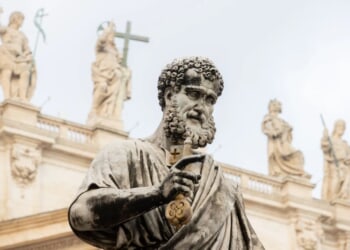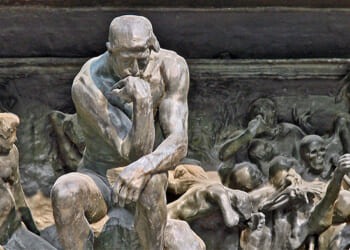One hopes that Russia and Ukraine can build upon the diplomatic and humanitarian momentum of the recent prisoner exchange to develop a permanent peace.
In an encouraging moment for diplomacy in the Russia-Ukraine conflict, the two sides completed a major prisoner swap last week—the single largest such exchange since the beginning of the war in February 2022. The swap was agreed to during recent bilateral negotiations in Istanbul, Turkey; it involved each side returning 390 prisoners, 270 servicemen and 120 civilians.
“I feel joy because I’m home, that’s all,” said Vasyl Gulyach, who spent 30 months as a prisoner of war. “I’m happy for you, for us, that we came…we prayed and asked for this to happen.”
The 390-person swap is understood to be the first phase in a series of transfers: according to the BBC, “both sides have agreed to an exchange of 1,000 prisoners and confirmed there would be further swaps in the coming days.”
“We are bringing our people home,” Ukrainian President Volodmyr Zelenskyy celebrated on social media. “We are verifying every surname, every detail about each person.”
U.S. President Donald Trump also took to social media to celebrate the swap, suggesting, “This could lead to something big???”
Whether the swap is an isolated moment amidst a war that will continue to churn, or the start of a wider diplomatic thaw, of course, remains to be seen.
A Prisoner Exchange, Not a Ceasefire
The prisoner swap was agreed to one week ago, in Istanbul, “when low-level delegations from Ukraine and Russia came face to face for the first time since March 2022,” the BBC reported. And “even though the meeting lasted only two hours and failed to make any progress towards a ceasefire,” the swap is an encouraging result. The fact that delegates from each of the warring nations were willing to meet for the first time in over three years marks tangible progress.
According to Russian Foreign Minister Sergei Lavrov, the talks will continue. Moscow is expected to hand the Ukrainians a “memorandum.” Trump, too, suggested that the talks would continue “immediately,” with the intention of reaching a ceasefire agreement and ultimately an end to the war.
The ongoing diplomatic efforts have been fraught with complications. Zelensky has accused Russian President Vladimir Putin of “trying to buy time” and continue the war. For his part, Lavrov has suggested that Zelensky is not a legitimate leader.
When asked if Russia was ready to sign a peace agreement, Lavrov said, “First we need to have a deal. And when it’s agreed, then we will decide. But, as President Putin has said many times, President Zelenskyy does not have legitimacy.” The foreign minister added that after an agreement was ready, Russia would “see who out of those in power in Ukraine has legitimacy.”
Russia has regularly insisted that the current Ukrainian government under Zelenskyy is illegitimate, on the basis that his five-year presidential term expired in 2024 and the country did not hold its scheduled elections that year. However, given the circumstances in Ukraine, the country’s political opposition has avoided calling for new elections, and Zelenskyy’s legitimacy as Ukraine’s leader has not been seriously questioned.
“The key task now is to prepare a peace agreement which will be reliable and provide a long-term, stable and fair peace without creating security threats for anyone,” Lavrov concluded.
One hopes that Russia and Ukraine can build upon the diplomatic and humanitarian momentum of the recent prisoner exchange and build towards a permanent peace. The war, now in its fourth year, has devolved into a stagnant war of attrition and has led to devastation on both sides—without much hope for a strategic breakthrough.
About the Author: Harrison Kass
Harrison Kass is a defense and national security writer with over 1,000 total pieces on issues involving global affairs. An attorney, pilot, guitarist, and minor pro hockey player, Harrison joined the US Air Force as a Pilot Trainee but was medically discharged. Harrison holds a BA from Lake Forest College, a JD from the University of Oregon, and an MA from New York University. Harrison listens to Dokken.
Image: Shutterstock / home for heroes.















